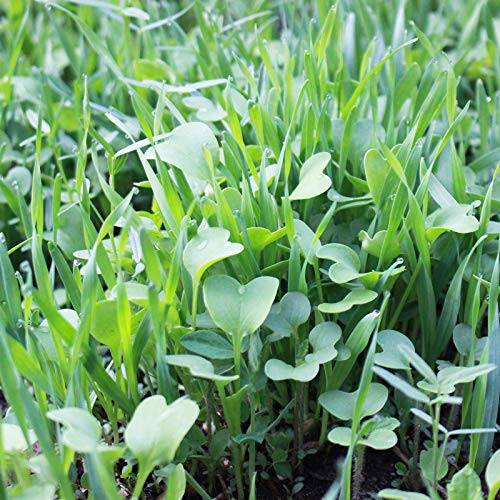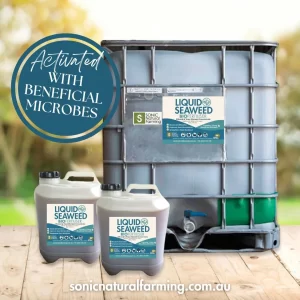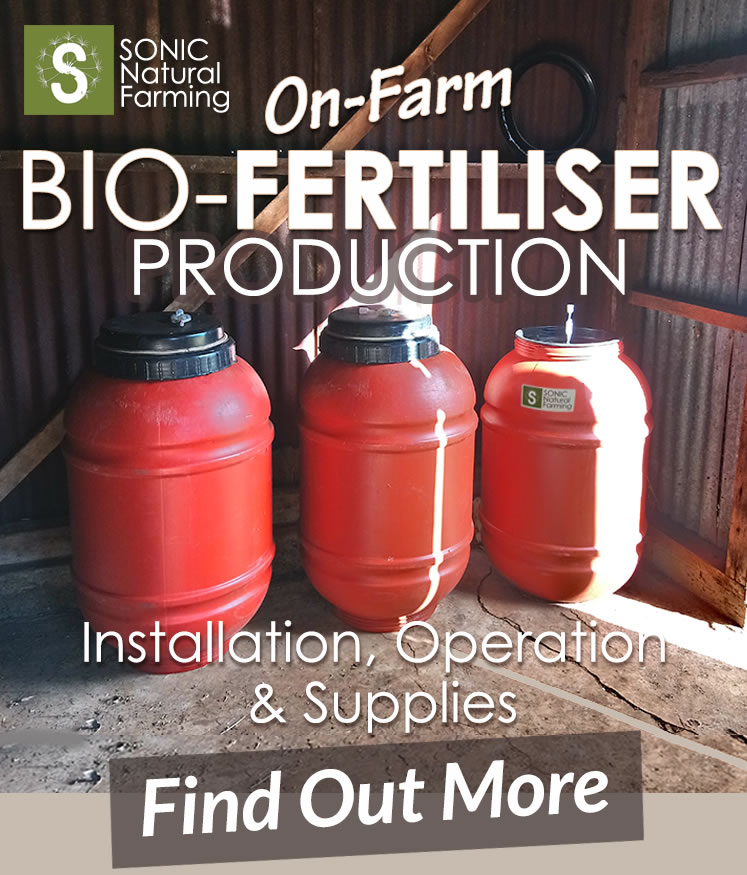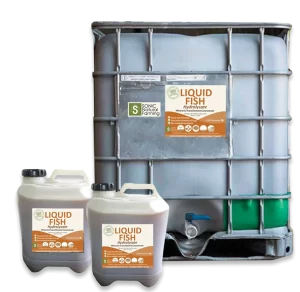Biological Fertiliser Uses for Mixed Crop Growers
Regenerative small mixed crop growing and the use of Biological Fertilisers play a crucial role in boosting and maintaining soil fertility throughout fast crop rotations. By embracing regenerative practices, and utilising natural sources of nutrients, growers can produce nutrient-dense food while ensuring the long-term health of their land.
Organic Nutrition for Seeds, Soil and Plants
Seaweed and Fish Biological Fertilisers, made from natural ingredients and living organisms, are a key component of regenerative agriculture. These fertilisers help to replenish the soil’s essential nutrients, improve soil structure, and support the diverse microbial life that is essential for healthy, productive ecosystems.
Biological inputs work in harmony with the natural cycles of the land, promoting a thriving, self-sustaining soil ecosystem
For small mixed crop growers, the integration of Biological Fertilisers into their regenerative practices is particularly impactful.
With a diversity of crops, combined with the nurturing effects of these natural soil amendments, growers can create nutrient-dense foods while also building resilience in the land.
This approach not only benefits the growers and their customers but also contributes to the overall health and sustainability of the local environment.

Plant Diversity to Build the Soil
By growing complementary crops side-by-side, soil fertility is maintained more effectively, with each crop contributing to the overall productivity of the system. This can lead to higher yields and a more diverse array of nutrient-dense foods.
Through the natural interactions between different plant species, the soil’s fertility is enhanced, and pests are more effectively managed
Regenerative mixed crop growers have been at the forefront of this approach, demonstrating the potential for creating thriving, resilient agricultural ecosystems.
By embracing the principles of mixed cropping, these farmers are able to cultivate a diverse range of crops, promote biodiversity, and ultimately, regenerate their soil and produce genuine nutrient-dense food.
By harnessing the natural synergies within a mixed cropping system, we can work towards a more balanced and resilient agricultural landscape.
Biological Support through the Entire Growth Cycle
Providing plants with the right nutrients and support at every stage of the growth cycle is crucial for producing nutrient-dense food. One often overlooked but vital aspect is seed treatment with Biological Fertilisers.
Seed treatment with specialised biological products can give young plants a strong start by supplying essential nutrients and beneficial microbes. This helps establish robust root systems and overall plant health from the very beginning.
Using biological seed treatments as part of a comprehensive nutrient management plan supports the plant’s natural growth processes throughout its lifecycle. This approach ensures the delivery of all the necessary building blocks for thriving, nutrient-rich yields.
Investing in quality seed treatment is an important step towards growing food that is truly nourishing for consumers and the planet.
Biological Soil Care
Naturally cold fermented Biological Fertilisers deliver balanced organic minerals. Activated with beneficial microbes, these chelated mineral concentrates stimulate beneficial microorganisms in the soil. Increased biological activity then supports tree growth, nutrient density and overall crop resilience.
Liquid Seaweed Benefits for Mixed Crops
Liquid Seaweed is rich in essential minerals such as nitrogen, phosphorus, potassium, and trace elements. These nutrients play a vital role in promoting plant growth and development.
Additionally, Liquid Seaweed contains natural plant hormones like auxins, cytokinins, and gibberellins that stimulate root growth, plant immunity, and nutrient density.
Liquid Fish Benefits for Mixed Crops
Liquid Fish Fertiliser is made from fish discards from processing. It is a potent source of nitrogen, phosphorus, potassium, amino acids, enzymes, vitamins, and trace minerals.
Cold processed Biofertilisers deliver nutrients that are bio-available for plants to easily uptake. Liquid Fish not only provides essential nutrients but also enhances soil fertility by feeding beneficial microbes in the soil.
Balanced By Nature
Using a combination of Liquid Seaweed and Fish Biofertilisers offers several benefits.
Firstly, they provide a balanced nutrient profile necessary for healthy plant growth and fruit production. Secondly, these fertilisers improve soil structure by increasing microbial activity and organic matter content. This leads to better water retention capacity and nutrient availability for crops.
Moreover, the natural hormones present in both Liquid Seaweed and Liquid Fish Biofertiliser help regulate plant growth processes effectively. They promote root development for better nutrient uptake while stimulating flowering and fruiting stages for higher yield potential.
By incorporating Biological Fertilisers into your regenerative farming practices, you can reduce your reliance on synthetic fertilisers while simultaneously improving soil structure. This approach not only benefits crop productivity but also contributes to long-term sustainability.
How to Use Biological Fertiliser in Organic Mixed Crop Growing
SONIC Natural Farming Biological Fertilisers are concentrate products requiring dilution. Adjust rate to suit growth stage. Use lower rate for early growth and higher for advanced crop stages.
Vegetables: 3-5L/ha every 7-14 days from emergence/transplant
Vegetables (advanced): 5-15L+/ha

















